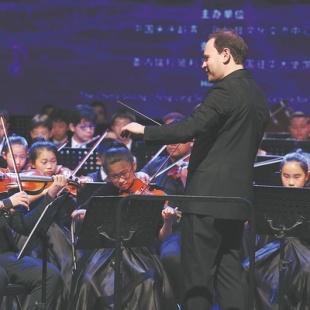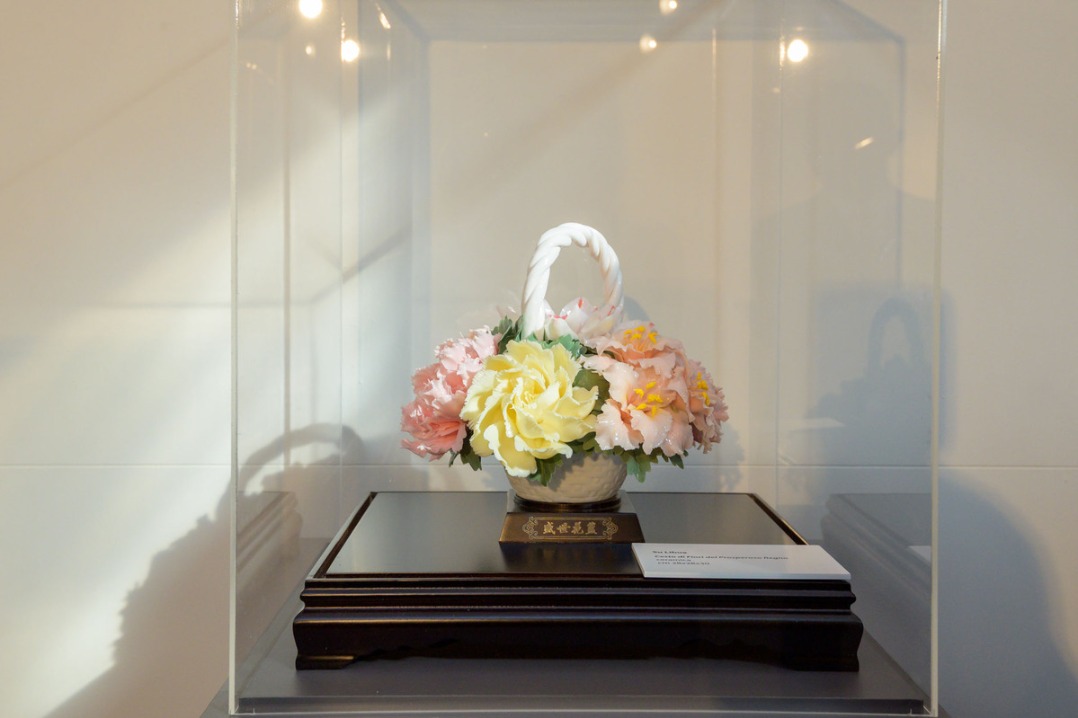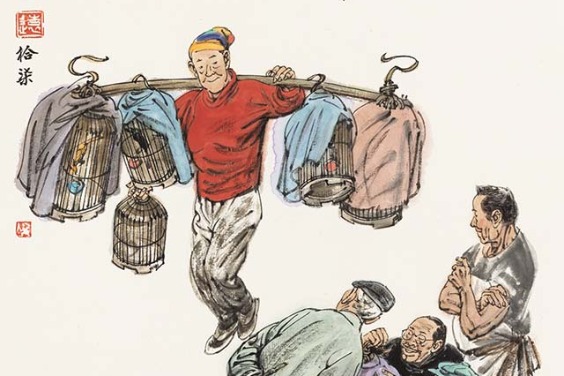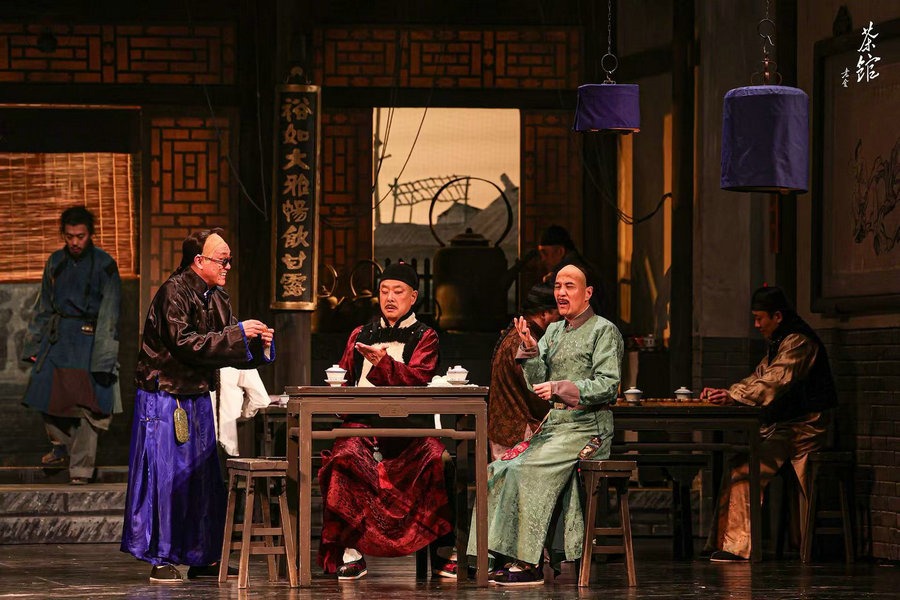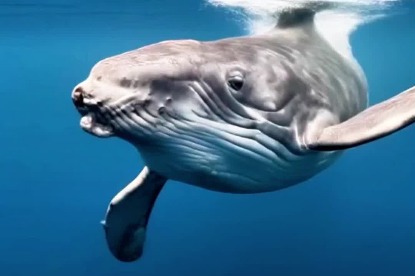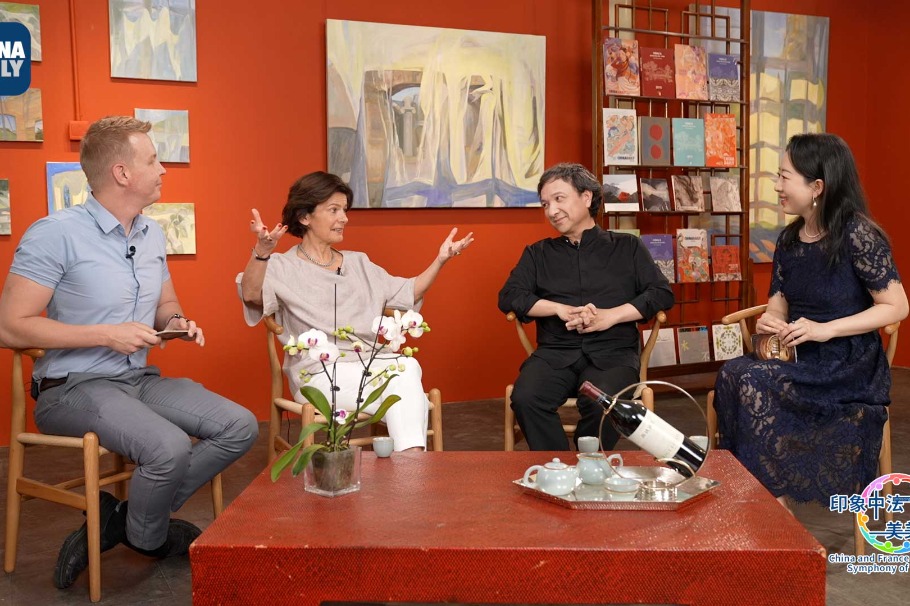Venezuelan orchestra brings Latin joy to Beijing


As the piece unfolds, Vasquez, who is initially facing the orchestra and swaying with the music, turns to face the crowd. With ascending and descending hand gestures, he expertly directs the audience's clapping, creating a dynamic interplay between the performers and the listeners.
This was a scene from the encore performance by the Juan Jose Landaeta Symphony Orchestra at the China and Venezuela Youth Symphony Concert in Beijing on June 20 in celebration of the 50th anniversary of diplomatic relations between the two countries.
The orchestra, whose members are aged 14 to 25, and the Soong Ching Ling Peace Angel Art Troupe Orchestra, an even younger ensemble, performed together.
This was the first overseas tour for the young Venezuelan orchestra and their repertoire included Venezuelan composer Inocente Carreno's Margaritena, Mexican composer Silvestre Revueltas' Sensemaya and Evencio Castellanos' Santa Cruz de Pacairigua.
"We want to perform songs with a Venezuelan flair and Margaritena is a well-known folk song from Venezuela," says Vasquez.
"Santa Cruz de Pacairigua is by a Venezuelan composer named Evencio Castellanos. You can enjoy the beautiful sound of the piano, steel drums and harp. The trumpet solo at the beginning feels like it's saying, 'the party has started! You can dance'," he says.
Sensemaya is a song with a strong Latin American style. Latin American music can be challenging to play, especially when it comes to the rhythm. The performers have to feel it inside them. It's a profound type of music that is a rich mix of elements within a piece. Performers need to find a balance when playing, he adds.
On June 17 and 18, the orchestra collaborated with the China National Symphony Orchestra at the Beijing Concert Hall to present two concerts. Vasquez expresses his amazement at popular Chinese pieces, such as Jasmine Flower and Dance of the Golden Snake.
"We're so happy and proud to play Chinese music," he says.
"The melody is so beautiful. When you play, you feel like you can keep playing more and more. The contrasts in the music also amazed me," he says, humming the melody of Dance of the Golden Snake.
"Music is a universal language. We can communicate better when we play each other's music."
Vasquez has visited China several times. "I wanted to show the charm of a young Venezuelan orchestra this time."
Over the past two months, Liu Zheng has been conducting the Soong Ching Ling Peace Angel Art Troupe Orchestra in preparation for the concert.
Their repertoire includes Chinese composer Shi Wanchun's Festival Overture, Tchaikovsky's Swan Lake, Gustav Holst's Jupiter, the Bringer of Jollity, and Dvorak's Symphony No 9 Fourth Movement.
"The young orchestra was established just five years ago and its members are mostly aged 8 to 19.Some have heavy academic burdens, and these pieces are quite challenging even for adults to perform," says Liu.
However, he says that the young musicians did a good job. He adds that the members of the Juan Jose Landaeta Symphony Orchestra all grew up in Venezuela's publicly financed, voluntary music education system, El Sistema.
"They experience music through play. Generally, children in China are more reserved and formal in their performances. Tonight, they have been influenced by their Venezuelan counterparts. They have learned to first enjoy the music and then release that energy to the audience. This concert will bring about great improvements for the children in China," he says.
El Sistema was established in Venezuela in 1975 by Maestro Jose Antonio Abreu. It offers early-age musical ensemble involvement based on a distinct set of principles that emphasize immersive and joyful musical creation as a means for societal advancement.
El Sistema seeks to provide an opportunity for the underprivileged. Participation is free for all students.


